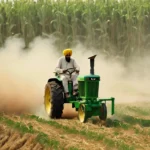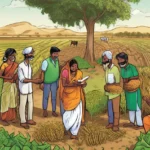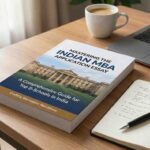New Delhi, 2025 — In an era marked by rapid modernization and cultural shifts, India is witnessing a growing movement to revive traditional values, with proponents asserting that these values are not just relics of the past but essential foundations for a strong and enduring democracy.
The Role of Traditional Values in Indian Society
Traditional values in India encompass a wide range of cultural, religious, and communal norms that have guided generations. These values, which include respect for elders, community cohesion, and spiritual practices, are increasingly viewed as vital tools to reinforce the fabric of Indian democracy.
Enhancing Social Cohesion Through Traditional Practices
- Community Engagement Traditional Indian values often emphasize the importance of community and collective well-being. Reviving these practices can enhance social cohesion and encourage a more community-oriented approach in today’s individualistic society. This sense of belonging can lead to more robust civic engagement, which is vital for a healthy democracy.
- Moral Education Many traditional values are associated with moral teachings that foster integrity, honesty, and duty. Reinforcing these values through education systems can help cultivate future generations who are ethically minded and conscious of their duties as citizens.
- Respect for Institutions Traditional values often instill a deep respect for institutions, be they familial, educational, or judicial. This respect is crucial for maintaining societal order and upholding the rule of law, both of which are essential for democratic governance.
Challenges in Reviving Traditional Values
While the revival of traditional values offers numerous benefits, it also presents challenges:
- Balancing Modernity and Tradition One of the significant challenges is balancing modern values with traditional ones, especially in a rapidly globalizing world. There is a need to ensure that the revival of traditional values does not impede progress or inclusivity.
- Inclusivity and Diversity India’s diversity means that what constitutes traditional values can vary significantly across different cultures and regions. Any movement to revive these values must be inclusive, recognizing and respecting this diversity rather than imposing a monolithic set of norms.
The Political and Social Implications
The push to revive traditional values has both political and social implications. Politically, it can garner support from segments of the population that feel alienated by rapid modernization. Socially, it can serve to strengthen the moral underpinnings of society, promoting behaviors that support democratic life, such as altruism, participation, and dialogue.
Conclusion
Reviving traditional values in the context of modern Indian democracy offers a pathway to reinforce social and moral order and strengthen democratic engagement. However, this revival must be approached with care to ensure it complements contemporary societal needs and respects the pluralistic nature of Indian society. As India continues to evolve, the dialogue between tradition and modernity will shape the resilience and vibrancy of its democratic institutions.




















